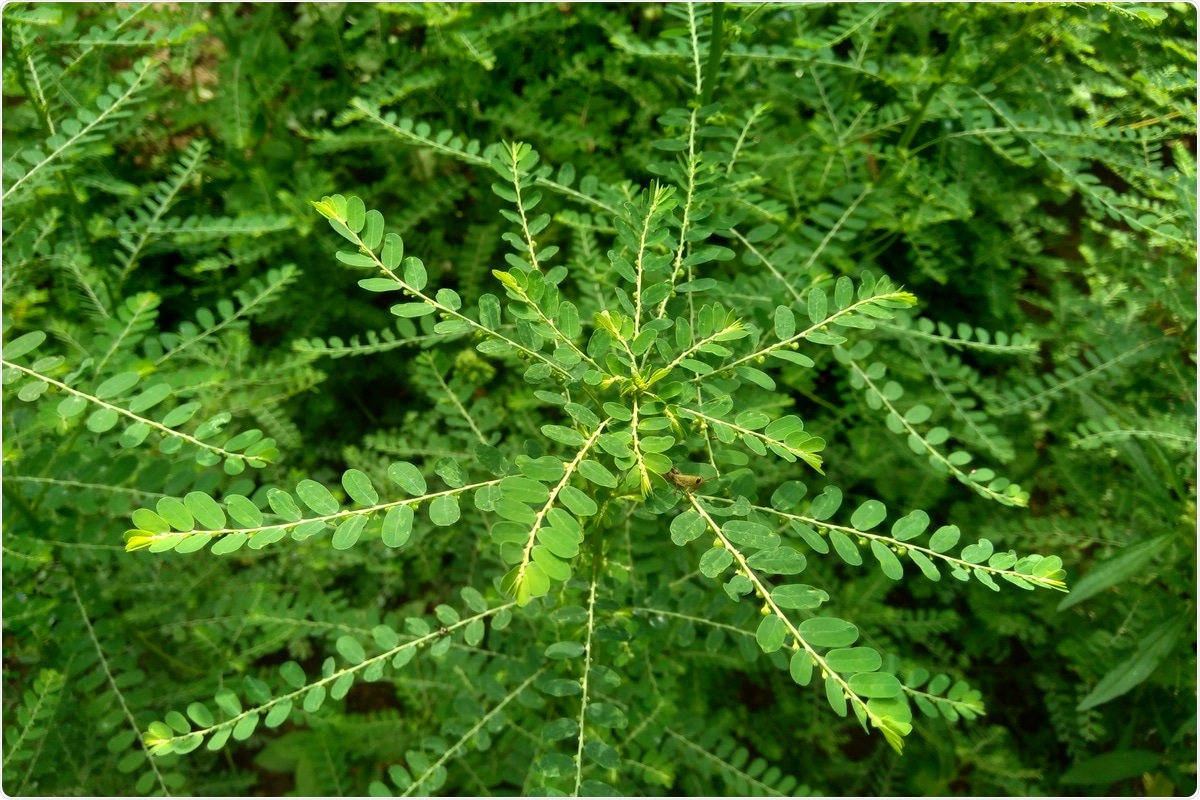The coronavirus disease 2019 (COVID-19) pandemic, caused by the severe acute respiratory syndrome coronavirus 2 (SARS-CoV-2), continues to spread globally.
Chinese herbal medicines have shown promise in treating various ailments. Their active ingredients can play pivotal roles in warding off infections.
A team of researchers at the State Key Laboratory of Quality Research in Chinese Medicine, Macau University of Science and Technology in China found that Corilagin – which has shown an antiviral effect on viruses like the human immunodeficiency virus (HIV), Epstein-Barr virus (EBV), and the hepatitis C virus (HCV) – can prevent SARS-CoV-2 infection by inhibiting the interaction between the spike protein’s receptor-binding domain (RBD) and the human angiotensin-converting enzyme 2 (ACE2) receptor.
The study, published in the journal Phytomedicine, characterized an active compound, corilagin (a derivative from Phyllanthus urinaria), as potential SARS-CoV-2 entry inhibitors for its preventive application in daily antiviral hygiene products.

Corilagin is a compound derived from Phyllanthus urinaria. Image Credit: Hasnia / Shutterstock
RBD and ACE2 interaction
The SARS-CoV-2 contains spike proteins, that protrude across its surface, which gives the virus its crown-like feature. It is also an enveloped and single-stranded RNA virus, belonging to the subgenus Sarbecoviruses (or thocoronavirinae) family. Further, SARS-CoV-2 contains genome encoding the replicases like papain-like protein (PLpro), 3-chymotrypsin like protein (3CLpro), helicase, and RNA-dependent RNA polymerase (RdRp). All these enzymes are critical elements for the replication of viruses.
In SARS-CoV-2, there are four structural proteins, the spike (S), envelope (E), membrane (M), and nucleocapsid (N) proteins. Each one plays in the infection process.
The spike protein recognizes the host cell receptors and initiates membrane fusion. The spike contains a receptor-binding domain (RBD), which binds with the human ACE2, the cellular gateway for the virus to enter and cause infection.
Finding a new small-molecule inhibitor that targets the spike’s RBD could help prevent COVID-19 by inhibiting SARS-CoV-2 from entering host cells and replicating.
The study
In the current study, corilagin has been tagged as a small-molecule inhibitor for targeting the SARS-CoV-2 spike protein RBD, blocking the fusion between the RBD and the human ACE2.
The team screened more than 1,800 natural compounds to identify SARS-CoV-2 spike-RBD inhibitors to arrive at the study findings. They used computational docking combined with bio-layer interferometry. From there, the team identified corilagin, which has a strong binding affinity with SARS-CoV-2-RBD or human ACE2 protein through assays.
The team also found that the active ingredient inhibits RBD-ACE2 fusion, the initial step of infection. Lastly, the team checked for corilagin’s toxicity using MTT assay and maximal tolerated dose (MTD) studies in laboratory mice.
In conclusion, the team identified corilagin as a small-molecule inhibitor targeting the RBD of spike protein in SARS-CoV-2. The study also noted that corilagin blocks the spike-RBD binding on the ACE2 receptor, eliminating the infectious property of the contagious property of RBD-pseudotyped lentivirus in hACE2 overexpressing HEK293 cells, which is similar to the viral infection of SARS-CoV-2 in human cells.
The team revealed that corilagin could be used in further research to develop novel drugs and therapies to prevent SARS-CoV-2 infection.
Corilagin has the potential to inhibit the adsorption and infection of new coronaviruses on human host cells, and making it as a potential drug candidate against COVID-19,” the researchers noted in the study.